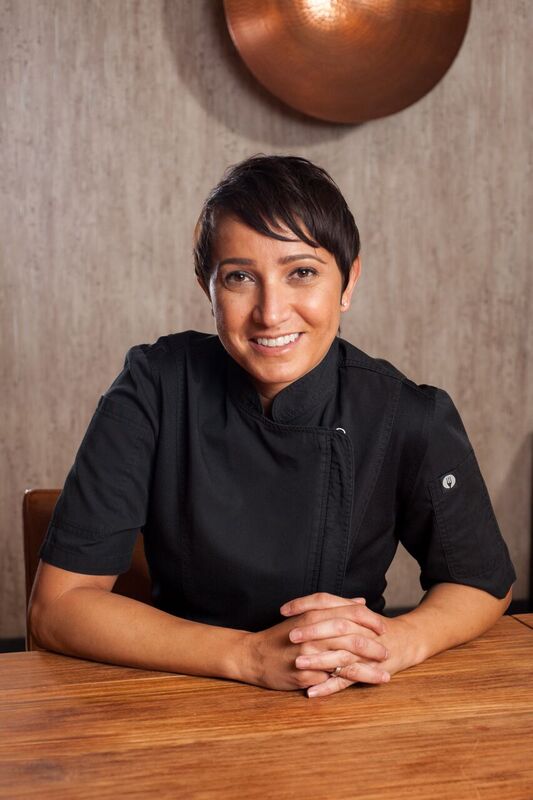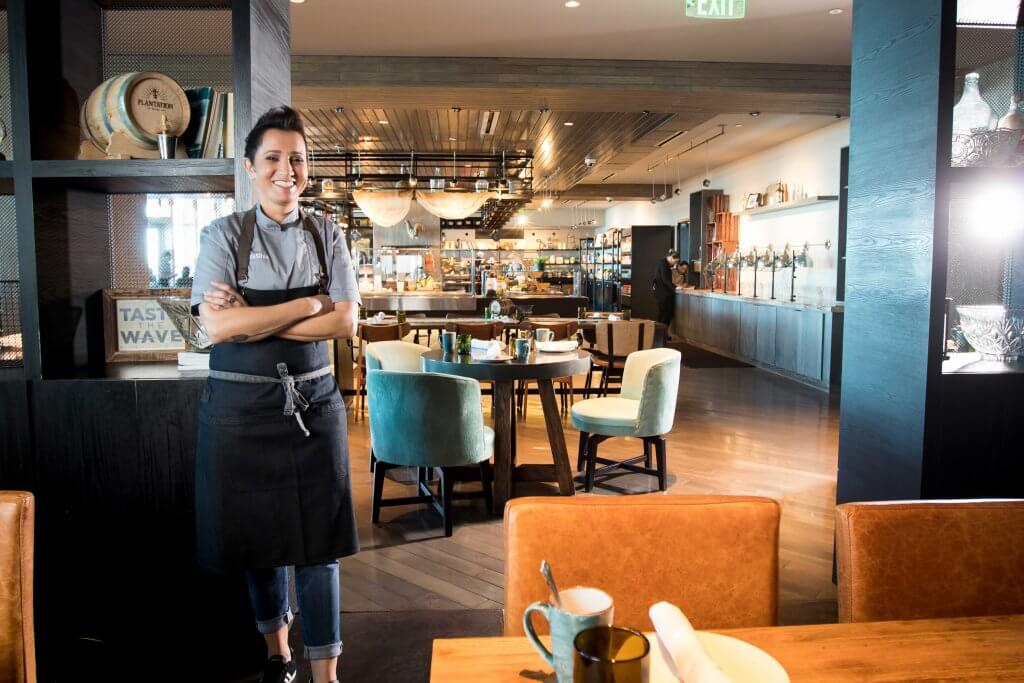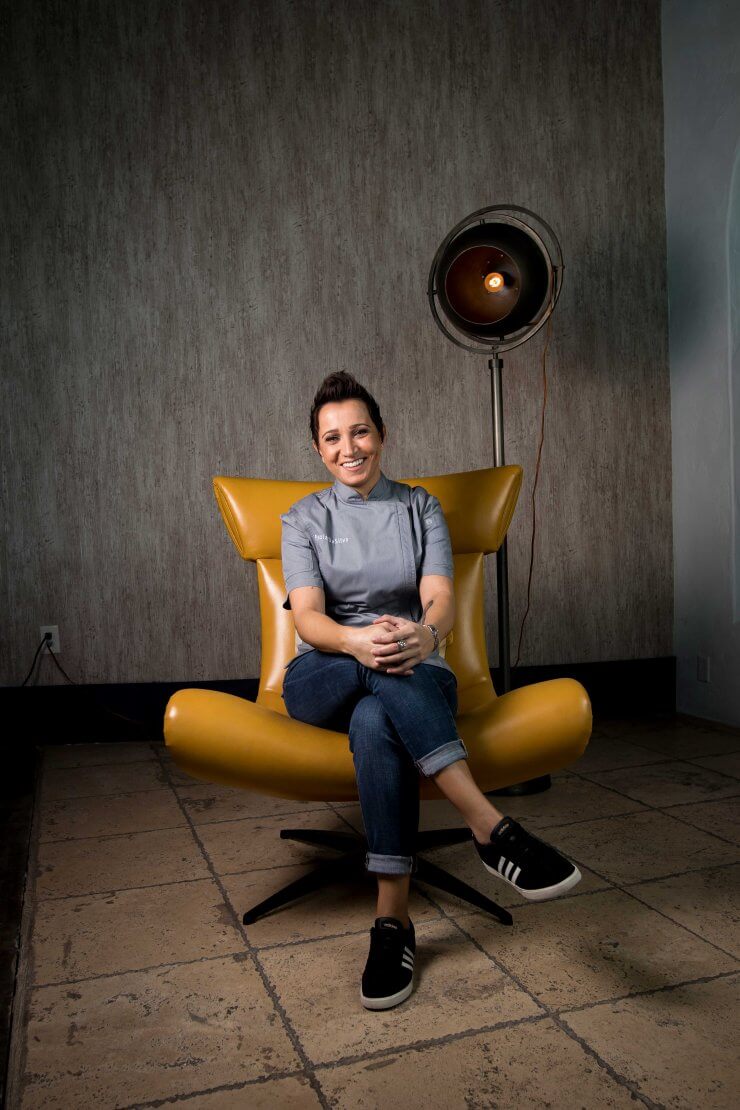Paula DaSilva is the Executive Chef at the Ritz Carlton Fort Lauderdale. She told us a little bit about her Brazilian heritage, growing up in her parents restaurant, and how that kickstarted her passion for cooking. We then spoke to her about sustainability practices in the kitchen, how to create a “Fair Kitchens” mentality and environment in the workplace, and what cultural changes and food trends she hopes to see in the coming years.
-
Do you remember what first inspired your love of cooking? And when did you know you wanted to make it a career?
I grew up helping my parents in their restaurant from the age of 10. The older I got, the more cooking I would do. Upon high school graduation, I had already started to love the kitchen and I knew I wanted to attend culinary school to gain more experience in regional and classical cooking – I knew then that this would become my career and passion.
-
Though America has been your home for many years now, you are originally from Brazil. How do your Brazilian roots influence your style of cooking?
It wasn’t until about 5 years ago that I started to bring some of my Brazilian influence into the menu. I like to keep things simple and give it as much originality as possible. One very important thing I learned in my early years working with my parents was the importance of seasoning the food. I would say that has allowed me to be bold when it comes to flavor. I use a lot of fresh herb and garlic, lime, chili peppers – I want all of that to come through.
-
Ritz-Carlton has been making a push towards implementing more and more sustainable practices at their properties around the world. How have you and your team been integrating sustainability into your operation?
I’ve always supported sustainability in all my positions. We check the Seafood Watch guide regularly for best choices. We have moved away from plastic straws and to-go containers. We support our local farmers during the Florida growing season. We use an in-house filtration system for our water service. We have some cocktails on the menu that are crafted with all-natural and organic spirits. Most recently, I have partnered up with a food recovery company and we are in the process of finalizing details in order to have left over foods picked up regularly and sent to a local food bank in need, such as Salvation Army or another facility.
-
What do you think is one of the most important things more and more chefs and restaurants need to start doing in regards to sustainability?
Educate the staff! Truly live and follow the process – I still see restaurants serving seafood that is on the “Do Not Serve” list for fear their patrons will be upset if they remove it from the menu. Don’t just talk about it – lead by example!
-
What does working in a “Fair Kitchen” mean to you? And in what ways have you made an effort to create a safe, respectful, and welcoming environment in the kitchens you’ve worked in?
We are in a new culture, a new way world and we have to have new ways of thinking of treating people and evolving. For the most part, I have been very lucky to have worked in kitchens that had minimal amount of poor treatment towards me and others. I have done my share of raising my voice in the kitchen to make sure my point is understood, but I have always been fair in holding everyone accountable equally. Now after 20 years of being in this industry, one of my main focuses is to make sure that everyone I hire understands that my expectation first and foremost is teamwork and respect. I remind my staff to always welcome anyone new coming in to the kitchen, show them the ropes, teach and help them, don’t watch them flounder with challenges before stepping in and lending a hand. A respectful and fun culture retains staff longer and also allows them to thrive and grow!.
-
As we kick off not only a new year, but a new decade – how do you hope to see kitchen culture progress and change in the coming years?
I hope to see more women in leadership roles! I know we have come a long way… but we still have a long way to go! I also want the cultural expectation of having to work ridiculously long hours and days to become something of the past. We have to take care of our health, mind and families – at times with the need to be present in the kitchen it makes it difficult to find balance. The other progress I would like to see improve is the alcohol and drug abuse. This industry is plagued with the stigma that you have to fall down that path and it’s not true for everyone – but it is an issue to be looked at and addressed.
-
In your opinion, what current trends do you see emerging in food?
I see a trend in cultural and ethnic cuisine… Indian, South American, Brazilian! I think chefs are discovering their roots and they no longer want to hide it. They want to somehow incorporate it into their menus subtly or straight up and bold!
-
If you could give any piece of advice to your younger self at some point during the course of your career, what would you tell yourself?
I would have taken extra business classes while in school. When you own your place or become an executive chef in a large operation, a big part of your responsibility becomes managing the finances. This is boring to chefs since all we want to do is cook, but its importance to know how to manage this.




